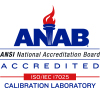 Posted on
Posted on 
Temperature plays a crucial role in both Appendix A and Appendix B of the USDA HACCP regulations. Temperature is one of the key factors that can affect the safety and quality of food products, and it is an important parameter that is monitored and controlled throughout food processing and handling operations.
Appendix A of the USDA HACCP regulations identifies temperature as a potential physical hazard that can affect the safety of food products. This includes the presence of hot or cold spots in equipment, which can cause uneven heating or cooling of food products, leading to the growth of harmful bacteria or the development of undesirable qualities such as spoilage, discoloration, or texture changes. To prevent these hazards, food businesses are required to monitor and control temperature during all stages of food processing, from cooking and chilling to storage and transportation.
In addition, Appendix A also identifies temperature as a potential chemical hazard, particularly in relation to the use of heat in food processing. High temperatures can cause chemical reactions in food products, such as the breakdown of nutrients or the formation of harmful compounds, such as acrylamide in fried or baked goods. Food businesses are required to monitor and control temperatures during cooking and processing to prevent these chemical hazards.
Appendix B of the USDA HACCP regulations provides guidance on establishing critical limits, which are specific values or ranges for parameters such as temperature that must be met to ensure the safety of food products. Critical limits for temperature may be established at various stages of food processing, depending on the type of product and the potential hazards. For example, critical limits may be established for the temperature of raw materials, the temperature of cooking, the temperature of cooling, and the temperature of storage.
In order to effectively monitor and comply with the temperature requirements outlined in Appendix A and Appendix B of the USDA HACCP regulations, utilizing reliable tools is essential. One such tool is the use of data loggers which are designed to accurately record and track temperature throughout the food processing and handling operations, ensuring that critical limits are met and potential hazards are mitigated. By incorporating MadgeTech data loggers into their HACCP plans, food businesses can streamline their temperature monitoring process, enhance food safety, and confidently comply with regulatory requirements. Embracing technology like data loggers is a proactive step towards maintaining the safety and quality of food products, thereby safeguarding consumer health and satisfaction.
For more information, please contact MadgeTech at [email protected].






